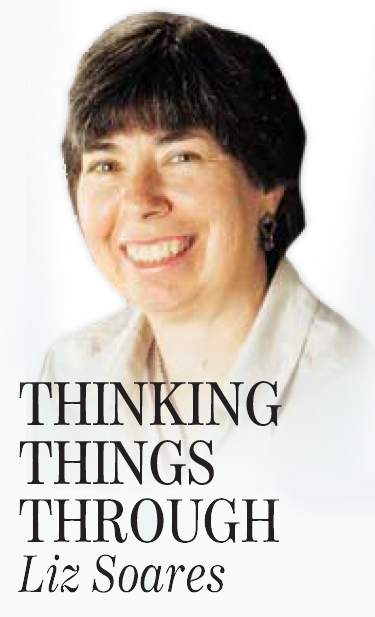Over my holiday break, I discovered something that I wanted to have. Needed to have. It was something I didn’t even knew existed.
It was a Princess of the Portuguese Empire Barbie Doll.
I had just joined a closed Facebook group called “I am Portuguese and Proud!” My maternal grandparents emigrated to southern New England from the Azores, an archipelago in the Atlantic Ocean that is a department of Portugal. My paternal grandfather was born in the Azores, but emigrated with his family at a young age to Rio de Janeiro. His mother moved the three boys with her to Massachusetts after her husband died.
So I am three-quarters Portuguese-American (my maternal grandmother was of French-Canadian heritage). And proud to be so. I kept my maiden name as a reflection of this pride.
Anyway, somebody in the group posted a picture of this doll, and suddenly all these other people were swooning over it. Who should pop up in the thread but one of my first cousins! She told me she had just bought one on eBay. Of course, I had to do the same.
At this writing, I am anxiously awaiting delivery. I am also anticipating the results of my DNA sample. I got a deal on an Ancestry kit on Cyber Monday.
DNA testing has become quite the fad. I think it may be spurring a greater interest in genealogy. The “I am Portuguese and Proud!” group has grown exponentially in the past month or so. It now has more than 51,000 members.
People of Portuguese heritage or birth live all over the world. This goes back to the empire of the raven-tressed Barbie Doll. The Portuguese were great explorers in the 15th and 16th centuries. Their empire eventually included Brazil, Angola, Mozambique, Cape Verde, Goa and Macau.
Still, I have been surprised by the some of the places that have communities of expat Portuguese. Mississauga, Ontario, Canada, for example. More people speak Portuguese in this suburb of Toronto than speak French. (And, yes, they have been complaining about the cold, too.) I did know Canada had a sizable Portuguese population because I spotted a French-Portuguese dictionary in a bookstore in Quebec City on a visit there in the late 1980s. It tickled me to have a dictionary in two foreign languages, so I bought it.
Some members of this group emigrated to the U.S. and Canada as children. Others were born here to immigrant parents. There are second-generation, like me. And then there are the actual Portuguese themselves — on the mainland, in the Azores or some other spot in the former empire.
Food photos abound. Some are for dishes I’ve never heard of. One woman just posted a picture of her oven, which had six small pans of bread baking in it. Everybody was making biscoito de nata (cream biscuits) for Christmas. Much discussion revolved around what people were eating on Christmas Eve. It usually involves bacalhau (cod). The descriptions of and recipes for these dishes may be in English, Portuguese or “Google translation-ese.” For example, a picture of a 9×13 pan which appeared to contain rice pudding, carried the caption “Allergy.” I believe this particular cook used the voice function on Google Translate to find the English expression for “arroz doce.”
I am gratified to learn my people have a sense of humor. We come from the land of fado music, after all. This is a rather mournful genre (at least traditionally) and is said to stem from the Portuguese concept of saudade — longing, a sense of loss, melancholia.
Despite the heavy burden of this heritage, those who are proud to be Portuguese enjoy sharing along the lines of “the things Portuguese mothers say.” For example, “Don’t run around the house barefoot! You’ll get sick and die!”
Jokes are told. “What did my parents do to kill boredom before the internet? I asked my 26 brothers and sisters and they didn’t know either.”
I have not seen so many Portuguese names in one place since I came to Maine in 1986. Fonseca, Silva, Martins, Santos, Chaves … the list goes on.
I’ve also been impressed with how kind people are in this group. They welcome people who introduce themselves as new members, including the woman who said she wasn’t Portuguese, just had many Portuguese friends. Hey, you’re part of the family. When members post pictures of their families, others compliment them. One lives in Hawaii, the other in Rhode Island, they’ve never met — doesn’t matter.
I am learning from this group. I am learning new recipes, a little history, a little culture. And it wouldn’t be a stretch to say I’m learning more about who I am.
Liz Soares welcomes email at lizzie621@icloud.com.
Send questions/comments to the editors.



Success. Please wait for the page to reload. If the page does not reload within 5 seconds, please refresh the page.
Enter your email and password to access comments.
Hi, to comment on stories you must . This profile is in addition to your subscription and website login.
Already have a commenting profile? .
Invalid username/password.
Please check your email to confirm and complete your registration.
Only subscribers are eligible to post comments. Please subscribe or login first for digital access. Here’s why.
Use the form below to reset your password. When you've submitted your account email, we will send an email with a reset code.